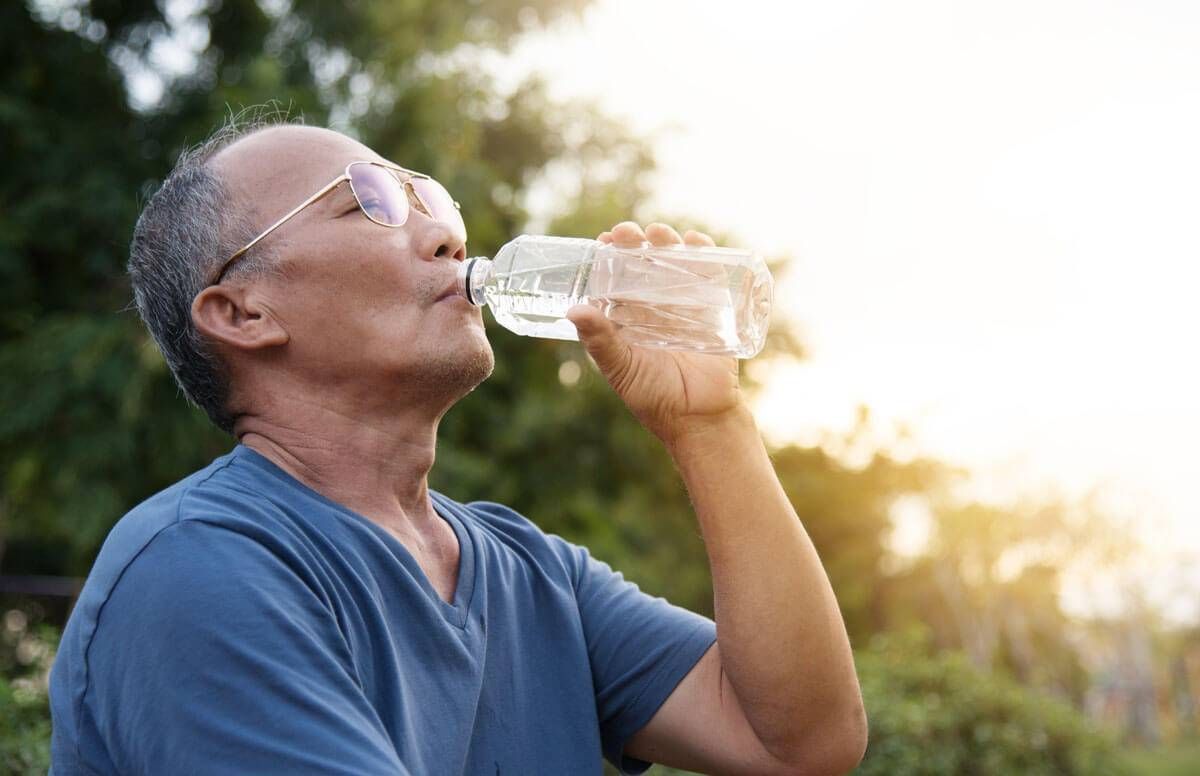Protect Your Heart and Health During the 'Dog Days' of Summer
Most heat-related illnesses are preventable
(Editor's Note: This article was originally published by American Heart Association News.)

Summer is a time for barbecues and other outdoor fun, but it’s also a time for sweltering heat. And experts say everyone, especially the very old and very young, need to know how to limit the sometimes-deadly effects of high temperatures.
The ancient Greeks and Romans called the sultriest days of summer the “dog days.” The Old Farmer’s Almanac marks the time as 40 days from July 3 to Aug. 11, coinciding with the rising of the star Sirius, also called the Dog Star.
Pay Attention to Heat Advisories
Already this year, the dog days have proved dangerous.
Heat warnings and advisories have been issued over a large swath of the country, with heat waves smothering the Northeast and shifting into the South and West.
More than 600 people die every year in the U.S. from heat-related illnesses that are preventable, according to the Centers for Disease Control and Prevention. The agency estimates more than 65,000 Americans visit an emergency room for acute heat illness each summer.
“I think people underestimate how quickly it happens. And when it starts to happen, if someone is progressing to heat exhaustion or heat stroke, you lose your self-awareness,” said Dr. Robert O’Connor, professor and chair of emergency medicine at the University of Virginia. “It’s important to keep an eye on those around you for heat-related problems. If someone is flushed, dizzy or uncoordinated, it can be an early sign.”
Recognizing the Signs of Dehydration
Dehydration can begin within just a few hours of extreme heat, so drinking extra fluids is important, especially when taking certain medications. Fatigue, headaches, muscle cramps, dizziness, sleepiness and dry mouth can all be signs of dehydration.
Dehydration causes the heart to work harder, putting it at risk. Hydration helps the heart more easily pump blood through the blood vessels to the muscles. And, it helps the muscles work efficiently.
A 2016 Environmental Protection Agency analysis of heat-related deaths said high temperatures could be a factor in many more deaths than officials realize – or count.
“By studying how daily death rates vary with temperature in selected cities, scientists have found that extreme heat contributes to far more deaths than the official death certificates might suggest,” the report said. “This is because the stress of a hot day can increase the chance of dying from a heart attack, other heart conditions, or respiratory diseases such as pneumonia.”
While infants and the elderly are more vulnerable to problems from heat, O’Connor said sometimes medicines can make someone more sensitive to heat and dehydration.
“They should talk to their doctor and look up their medications to see if it predisposes them,” he said.
Heat exhaustion and heat stroke are serious medical emergencies that require treatment. Both can cause headaches, nausea or vomiting. Heat stroke also can cause a high fever, warm skin with no sweating and confusion or unconsciousness.
The American Heart Association is the nation's oldest and largest voluntary organization dedicated to fighting heart disease and stroke. Founded by six cardiologists in 1924, our organization now includes more than 22.5 million volunteers and supporters. We fund innovative research, fight for stronger public health policies, and provide critical tools and information to save and improve lives. Our nationwide organization includes 156 local offices and more than 3,000 employees. We moved our national headquarters from New York to Dallas in 1975 to be more centrally located. The American Stroke Association was created as a division in 1997 to bring together the organization's stroke-related activities.

